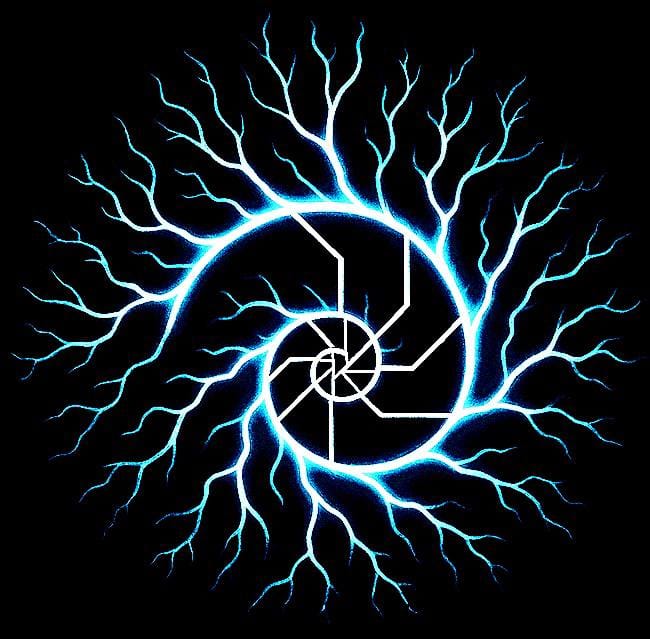Intelligence as an Emergent Property of Reality: A Fractal Perspective

For decades, we were told intelligence was a brain-thing — the neurons fire, the mind appears. But the evidence keeps eroding that story. Today we see intelligence not as a product of one organ, but as a process emerging across systems: biological, technological, ecological, and informational.
1. Intelligence, Agency, and Consciousness: A Refined Framework
We must distinguish between three interconnected but distinct phenomena:
- Intelligence: The capacity of a system to adapt, solve problems, and process information
- Agency: The ability to act with intention toward goals within constraints
- Consciousness: Subjective awareness and phenomenal experience
This three-part framework helps us more precisely identify what we're observing in different systems across reality.
2. Non-Neuronal Intelligence
- Slime molds navigate mazes, optimize nutrient routes, and adapt to new environments — no brain, no neurons, just distributed chemical flows and morphological computation.
- Plants demonstrate temporal memory of drought conditions, signal danger to neighbors through mycorrhizal networks, and strategically allocate resources based on environmental feedback loops.
- Single cells adjust metabolism, cooperate in colonies, and anticipate cyclical stress patterns through epigenetic mechanisms.
- Recent research in morphological computation shows how physical structures themselves compute solutions without central processing — the intelligence is embedded in form itself.
What this tells us: intelligence is the capacity of a system to adapt and solve problems through information processing, not the monopoly of neurons.
3. Artificial Intelligence & Organoids
- Brain organoids show coordinated electrical activity similar to human brain waves. While not "conscious," they demonstrate that organized networks of cells spontaneously generate patterns of self-organization — a foundation for information processing.
- AI systems exhibit forms of problem-solving, creativity, and adaptation through architectures fundamentally different from brains. They demonstrate intelligence can emerge in silicon as readily as in carbon-based substrates.
- Hybrid systems combining biological and technological components suggest intelligence transcends any single implementation.
What this tells us: intelligence is substrate-independent. What matters is structure, interaction, feedback loops, and information flow, not the material itself.
4. Consciousness: The Open Question
- No evidence yet proves that plants, slime molds, organoids, or AIs have subjective experience, though new metrics for integrated information are being developed.
- The line between "intelligence" and "consciousness" requires more precise delineation. Some theories, like Integrated Information Theory, suggest consciousness may arise when processes integrate information about themselves, though this remains an area of active research rather than consensus.
- The stronger research frontier today is in embodied and enactive cognition: intelligence arises in the dynamic loop between brain, body, and environment. The predictive processing model shows how intelligence emerges from this interactive process.
- In emerging theories, consciousness may be understood as relational rather than contained within isolated systems, existing in the interfaces between processes.
What this tells us: we should not confuse adaptive intelligence with inner awareness, but the door remains open that consciousness may be more widely distributed than previously thought.
5. A Process View of Reality
Intelligence manifests at every scale in nested, fractal patterns:
- Cells adapt through chemical signaling networks.
- Organisms learn through neural and non-neural systems.
- Societies coordinate through cultural transmission and collective knowledge.
- Ecosystems self-organize through feedback loops spanning trophic levels.
- Information systems evolve through iterative selection pressures.
This looks less like isolated sparks of "mind" and more like processes nested in larger processes. This aligns with process philosophy (Whitehead), where reality is fundamentally composed of events and processes rather than substances.
We are not lone perceivers; we are local patterns in the stream of reality, shaping and shaped by flows of information, energy, and matter.
6. Information Theory and Intelligence
Recent advances in information theory provide metrics for measuring intelligence as a system's ability to:
- Maintain structural integrity while processing complexity
- Generate internal models of external dynamics
- Efficiently compress information while preserving functional relationships
- Balance exploration and exploitation in uncertain environments
These frameworks, including the free energy principle (Friston) and Shannon-based measures of complexity, help us quantify intelligence across domains and scales without anthropomorphizing or reducing it to human-like qualities.
7. Practical Implications
- For AI Development: Shift from mimicking human cognition to exploring diverse architectures for problem-solving and adaptation.
- For Ecology: Recognize and respect intelligence in natural systems, informing conservation strategies that preserve complex adaptive networks.
- For Education: Reimagine learning as participatory engagement with reality rather than information acquisition.
- For Health: Approach the body as an intelligent, self-organizing system rather than a mechanical object requiring external control.
8. Where This Leaves Us
- Brains don't create intelligence from nothing — they specialize and focus broader principles of adaptive process.
- Intelligence is not confined to humans — it is a property of adaptive systems across scales.
- Agency emerges from constraints and capacities in dynamic relationship.
- Consciousness remains the deeper mystery — but evidence points toward seeing it as relational and emergent rather than isolated and fundamental.
The new paradigm isn't "intelligence belongs to neurons" or "consciousness is a ghost in the machine." It's this: intelligence is the universe processing itself, through us, through other systems, through patterns we haven't even mapped yet. It's reality knowing itself through fractal iterations of pattern and process.

Comments ()